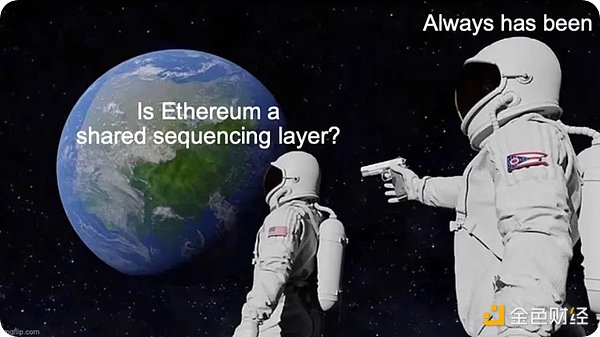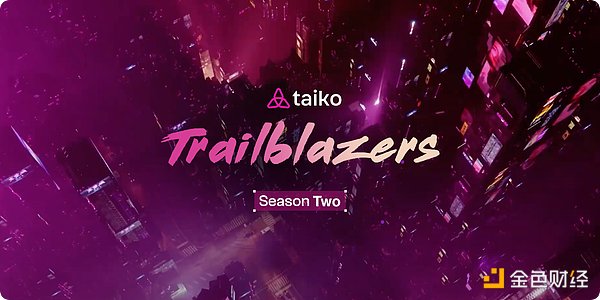Author: William M. Peaster, Bankless; Translator: Deng Tong, Golden Finance
Recently, Ethereum founder Vitalik Buterin pointed out that Taiko is a good example of "rollup-based". This L2 is a newer approach, but what does it mean?
Of course, rollup is a type of L2 that processes Ethereum transactions off-chain and then sends the data back to the Ethereum mainnet (aka L1) for security. Therefore, rollup-based is a newer concept in the rollup field. The key feature of a rollup-based like Taiko is that it uses Ethereum L1 to sort transactions.
In other words, the order of transactions based on Rollup is determined by Ethereum validators rather than a separate sorter. By using Ethereum for sorting, Taiko aims to be more decentralized than Rollup, which uses a centralized sorter, which describes the situation of most L2 today.
Because L1 handles transaction ordering, Rollup-based can batch and confirm transactions more efficiently, potentially reducing operational and transaction costs.

In addition, rollup-based eliminates the need for further complexities such as L2 external consensus mechanisms and signature verification sequencers, thereby simplifying the technical architecture.
In summary, Taiko represents an interesting new driver in the Ethereum scaling space. If you want to dig deeper, where to start today?
First, you need to bridge your ETH to Taiko. I recommend using a “fast bridge” platform like Relay or Jumper to quickly transfer ETH in; note that you can also quickly transfer ETH out of Taiko through these same platforms when you’re ready.
And then what? Well, one thing to keep in mind is that Taiko Labs is now overseeing its Trailblazers Season 2 event, which runs from now until December 16, 2024.

The new season will distribute 5 million TAIKO token rewards to L2 users for trading, and features an updated experience point system, new team opportunities, new badges, revised XP multipliers, and a new battle game called Faction Battle Arena.
The main way to get deeper into the Trailblazers 2 campaign is to try the top Taiko apps. For example, here are some of the applications the Taiko team is currently highlighting:
Oku — A bridge and swap platform for Ethereum Virtual Machine (EVM) chains
Ritsu — A decentralized exchange (DEX) on Taiko
iZUMi Finance — A multi-chain DeFi protocol that serves as a DEX-as-a-service platform
Meridian — A stablecoin, perpetual contract exchange, and lending protocol
In terms of size, Taiko is currently the 19th largest blockchain, according to L2BEAT. L2, but the network has a lot of room to grow - not only because of its novel, secure architecture, but also because of the growing demand in the Ethereum community to use truly decentralized rollups.
Of course, the concept of "rollup-based" is relatively new in crypto, and it may take a while to catch up on why networks like Taiko are so compelling. This knowledge gap is your arbitrage opportunity in terms of participating in rollup-based substratums!
 JinseFinance
JinseFinance






